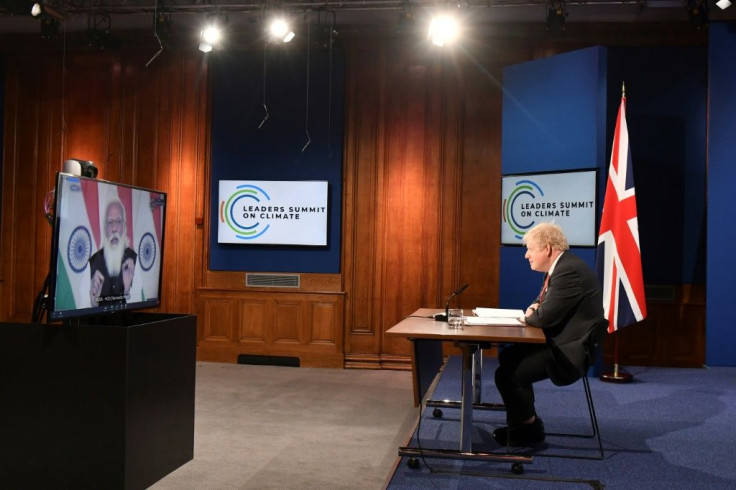UK, India To Start Formal FTA Talks Within Months
Britain and India will begin formal free trade deal talks later this year, the UK government said Tuesday, after they agreed an initial package to boost bilateral trade and investment.
With its massive population and growing economy, India has been high on London's list of trade deal targets since Britain left the European Union last year.
Under a post-Brexit "Global Britain" strategy, Prime Minister Boris Johnson's government is pivoting its foreign policy priorities towards the Asia-Pacific region, signing trade deals with countries including Japan and Singapore.
UK International Trade Secretary Liz Truss said India and Britain would start negotiations on an agreement "in the autumn", following the announcement of a preliminary "Enhanced Trade Partnership" deal.
"We want to get these negotiations completed as soon as possible," she told Sky News during a round of broadcast interviews touting the partnership package worth ?1 billion ($1.4 billion, 1.2 billion euros).
"Of course, FTAs (Free Trade Agreements) take longer, this is the immediate gains that we can get for both countries, driving jobs here in Britain and in India," Truss added.
She said both countries were looking for "early wins" reducing barriers to trade from a FTA, noting Britain wants tariffs lowered or removed on various exports to India, from cars to whisky.
The comments came before Johnson and his Indian counterpart Narendra Modi spoke on Tuesday, and announced a "2030 roadmap" for closer ties before the end of the decade.
New Delhi described the leaders as sharing a "common vision", and the "ambitious" plan would benefit both countries, and the wider world.
Johnson had been hoping to make his first major bilateral visit since Brexit to India, but the trip was postponed due to the worsening coronavirus situation on the sub-continent.

The partnership announcement with India includes lower trade barriers for some UK exports such as fruit and medical devices.
It also includes investment in Britain by vaccine maker the Serum Institute of India, which could eventually see more of its inoculations made in the UK.
Johnson's office said it expects the deal preceding FTA talks to create over 6,500 jobs.
The roadmap includes commitments to strengthen cooperation in areas such as health, climate, trade, education, science and technology, and defence.
India upped the status of its relationship with Britain to a "comprehensive strategic partnership" -- the first with a European power, Downing Street said in a statement.
"The agreements we have made today mark the beginning of a new era in the UK-India relationship," Johnson said.
Britain has close ties with India, where it was the colonial power until 1947. Some 1.6 million people in Britain are of Indian origin.
Truss said two-way trade between the countries stood at some ?24 billion and the government wants to double it by 2030.
But there are signs India may be reluctant to go further and sign a more wide-ranging comprehensive trade agreement, as Modi pushes "Made in India" and "Self-Reliant India" agendas.
Last year he abruptly baulked at joining the Regional Comprehensive Economic Partnership (RCEP), a free trade agreement among 15 Asia-Pacific nations, because New Delhi feared its agricultural, dairy and services sectors would be disadvantaged.
Former US president Donald Trump disparaged India as the "tariff king" for its duties on imported goods, hobbling trade talks despite his friendly relations with Modi.
Talks are due to resume between India and the EU on a free-trade deal later this month, eight years after 16 rounds of talks broke up in deadlock.
Trade negotiations are also reportedly set to resume with Canada soon after a gap of four years.





















